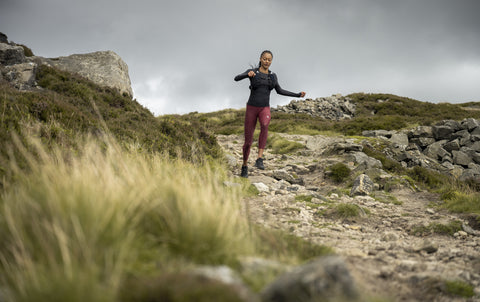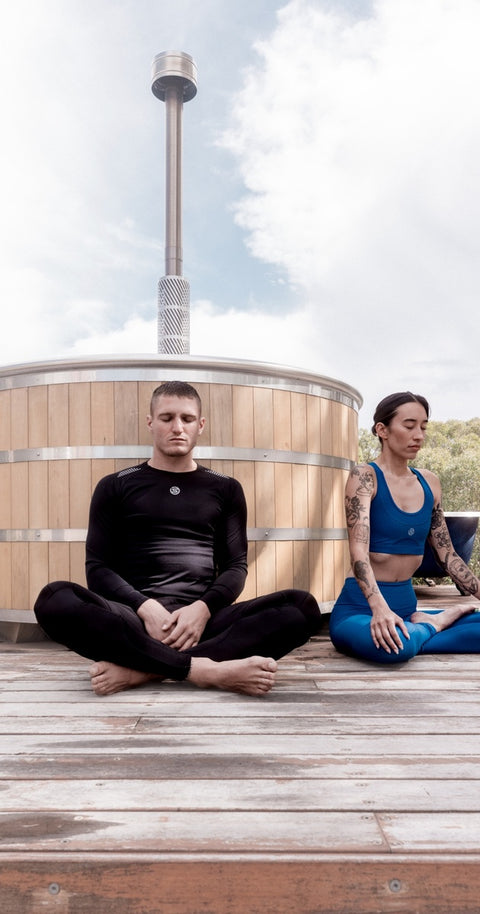Travel is one of life’s great pleasures, offering new experiences, cultures, and perspectives. But long flights, packed itineraries, and unfamiliar environments can take a toll on your body and energy levels. Whether you're embarking on a cross-country road trip or a long-haul flight overseas, here are some practical tips to help you stay comfortable, energized, and make the most of your travels.
1. Pack Light, Pack Right
Overpacking can make any trip more stressful. The key to smart packing is focusing on versatile, multi-functional items that save space and keep you prepared for various scenarios. Prioritize lightweight, breathable clothing that can be layered for different temperatures, and use packing cubes to stay organized and fit more into your luggage.
Pro Tip: Essential Items for Any Destination
No matter where you’re headed, always pack a small first-aid kit, a reusable water bottle, and travel-sized toiletries. A portable phone charger and an extra pair of comfortable shoes are also must-haves for any adventurer.
2. Stay Comfortable on Long Journeys
Whether you’re sitting in a car or on a plane for hours, discomfort can quickly turn excitement into exhaustion. Combat stiffness by taking breaks to walk around or do in-seat stretches. For flights, items like a neck pillow, noise-canceling headphones, and a cozy travel blanket can make all the difference.
Hydration is Key
Traveling can easily lead to dehydration, especially during flights. Drink water regularly, and avoid excessive caffeine or alcohol, which can dehydrate you further. Bring your own water bottle and fill it up before boarding or when stopping at rest areas.
3. Fuel Your Body for the Journey
Long days of travel can disrupt your usual eating routine, often leading to poor food choices. Avoid the temptation of airport fast food or unhealthy snacks at rest stops by packing nutritious snacks like nuts, fruit, and protein bars.
For longer trips, try to schedule meals at times that suit your destination’s time zone. This helps your body adjust, reduces jet lag, and keeps your energy levels steady. Opt for balanced meals with plenty of protein and healthy fats to stay satisfied throughout the day.
4. Minimize Jet Lag and Boost Energy
Jet lag is one of the biggest challenges of long-distance travel, especially when crossing multiple time zones. Start adjusting your internal clock a few days before your trip by shifting your sleep schedule to align with your destination. Once you arrive, spend time outdoors to soak up natural light, which helps reset your body’s circadian rhythm.
Post-Arrival Recovery
After a long flight or road trip, a brief nap or light exercise can do wonders for your energy levels. Stretching, walking, or doing yoga not only helps reduce stiffness but also boosts circulation and improves your overall mood.
5. Create a Simple Travel Recovery Routine
Exploring new places often involves a lot of walking and physical activity, which can leave your muscles feeling sore. Make recovery part of your travel routine to keep your body in top shape. A foam roller or massage ball can help ease muscle tension after a long day. Gentle stretching or yoga in the morning and evening helps reduce soreness and promotes flexibility.
If you're hiking or engaging in physically demanding activities during your travels, consider planning a rest day in between adventures to allow your body time to recover.
6. Stay Organized for Stress-Free Travel
Nothing saps the joy from a trip faster than scrambling for lost documents or searching for misplaced items. Stay organized by keeping travel essentials—like your passport, boarding passes, and accommodation details—together in a designated folder or travel wallet. Use a packing checklist to ensure you don’t forget anything important.
Additionally, apps like Google Maps or offline travel guides can help you stay on track and avoid unnecessary stress during your trip.
7. Be Flexible and Open to New Experiences
While planning your trip is essential, leave some room for spontaneity. Often, the best travel moments happen when you venture off the beaten path or embrace unexpected opportunities. Flexibility not only allows for adventure but also reduces stress if things don’t go according to plan.
Balance planned activities with downtime to relax, reflect, and enjoy the destination at your own pace. It’s the unscheduled moments that often become the most memorable.
Conclusion: Travel Smarter, Feel Better
Traveling is a rewarding experience, but it’s important to take care of yourself throughout the journey. By packing thoughtfully, staying hydrated, eating well, and incorporating recovery into your routine, you’ll stay energized and ready to make the most of every adventure. With the right mindset and a few simple strategies, you can travel smarter and return home feeling refreshed, not exhausted.
Safe travels, and enjoy the journey!






